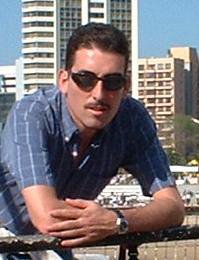Television Española´s (TVE) distorted, misleading portrayal of Puerto Rico in documentary

With much interest, I tuned to Television Española´s documentary on Puerto Rico which was broadcast here Friday night on TVE Channel 2 network. While I was impressed with the video footage and the quality of the interviews, I was really disappointed how TVE tried tried to portray Puerto Rico and its relationship with the United States.
Entitled "Puerto Rico and the United States -- A marriage of convenience," it contained interviews with educators, students, historians and political leaders from the three political factions in the island -- the statehood, commonwealth and independence parties. The reporter began by detailing how Puerto Ricans during the 1950s and 1960s embarked on a mass migration to New York concentrating in the Bronx. However, the reporter blamed the tidal wave of migrants on U.S. big business that came to the island to repatriate capital and offer few jobs. The fact is that Operation Bootstrap in the 1950s created thousands of jobs that were not available in this once agriculturally dependent island. It was indeed a soaring high cost of living and outside competition from manufacturers in foreign countries that led to some industry closures, which resulted in unemployment.
She theorized that the U.S. government for decades overlooked Puerto Rico since it won possession of the island in the Spanish American War in 1898. But she failed to make note that Spain overlooked her colony, as well as Cuba, during the 19th century, which led to the war in the first place.
Trying to prove that banking industry was dominated by U.S. financial institutions, the documentary showed footage of the main branches of Banco Popular de Puerto Rico and Western Bank -- both locally owned and operated! She didn´t mention how Banco Santander de Puerto Rico and Banco Bilbao Vizcaya Argenta (BBVA), the two most powerful financial institutions in Spain, have moved in and gained a strong foothold in the market.
Finally, after claiming that the United States has been unfair to Puerto Ricans by not giving them the right to vote in presidential elections but sending soldiers to fight in Iraq, the reporter concluded at the end that Puerto Ricans obviously don´t have any complaints about their "marriage of convenience" because they voted to keep the status quo in three referendums that took place in the 1990s.
As reporters, we usually embark on a journalistic endeavor with our minds made up, believing we are going to uncover what we suspected. But often times we are proven wrong in the middle of our inquiry. The difference between a good and mediocre reporter is measured on one side by those who show all sides of a controversy and on the other by those who insist on compling just enough information to support a predetermined hypothesis.


0 Comments:
Post a Comment
<< Home